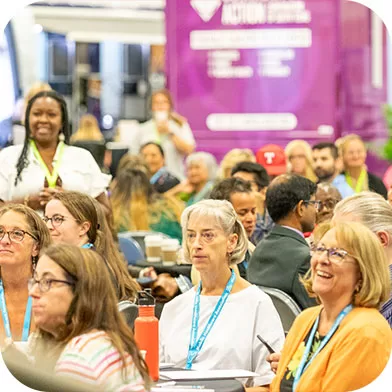Addressing the Healthcare Needs of New Arrivals in Chicago- A Mobile Healthcare Response

Chicago has been seeing an unprecedented number of asylum seekers since August 2022. Asylum seekers were staying at Chicago Police Department (CPD) district stations or O’Hare Airport. As the seasons changed, all CPD districts were decompressed and moved into 28 citywide shelters with some shelters housing up to 2500 individuals. These resources were quickly stretched thin. Chicago Public Department of Health reached out to mobile unit programs across the city to assist. The Ronald McDonald Care Mobile at Advocate Children’s Hospital and the University of Chicago Comer Children’s Hospital Mobile Medical Unit (Comer Mobile Unit) were two of the mobile unit programs that assisted. Both programs are primarily school based. They have been able to adapt their normal care routines to provide the needed services. These services included acute care, infectious disease screening, mass vaccination in addition to routine immunizations and health examinations. Along with new services, both programs had to adjust their normal workflow. Comer Mobile Unit was able to reach out within their organization for support for interpreter services and additional staff of a Community Health Worker to assist at sites. They became a Direct Relief partner. The Comer Mobile Unit had previously increased the age range of patients seen when schools were closed for the COVID pandemic from birth to 24 years of age. Ronald McDonald Care Mobile expanded the age range of patients they see from exclusively school-age children to now include children birth to 18 years of age. This also necessitated an increase in vaccine inventory to serve this expanded age range. Both mobile teams adjusted their appointment process to take walk-ins at events. The ability of both programs to change from their regular care model to something new allowed over 400 of patients ages 0 to 25 years old to receive health care in a timely matter. This experience shows how vital mobile healthcare is both in providing routine services and assisting with new matters as they arise. The nimble response of mobile health and the flexibility of the clinical teams that serve aboard mobile vehicles allowed for quick mobilization to all locations across Chicago. Both programs have made changes to their routines to serve this population and assist in an urgent public health concern. We will highlight the changes made and ways to identify potential areas to expand services within communities. Learning Objectives: · Review emergent demand on healthcare system related to the influx of migrants · Understand how the mobile health model can partner with large city and county systems to address unmet health needs. Discuss methods to expand school-based mobile health programs to varied opportunities.
Blair Foushi, MSN, APN, PNP-PC, Pediatric Nurse Practitioner, University of Chicago Comer Children’s Hospital Mobile Medical Unit; Amy Moses, MSW, Coordinator Pediatric Mobile Health, Advocate Children’s Hospital